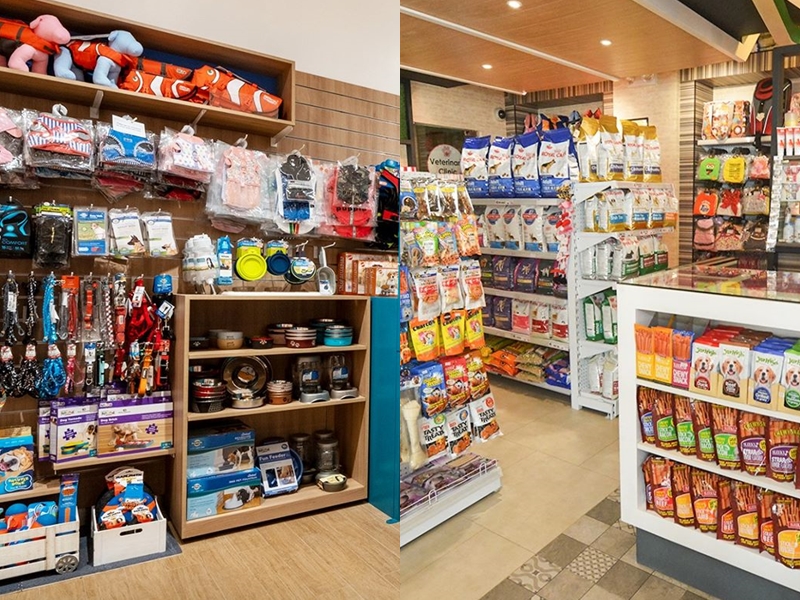What to Know Before Starting a Pet Store

Consider creating a pet shop if you have a passion for animals and strong entrepreneurial and creative skills. You may have a fascinating opportunity to express your distinct viewpoint on pet care by opening a pet store. A pet store is a great business to be in, but it’s also a lot of work. You have to research the industry, decide what kind of store you want to open, learn about all the different types of pets out there and figure out what you need for your business. If you can successfully navigate these tasks then the rewards will be worth the effort.
Is it profitable to open a pet store?
It’s true that pet stores don’t have the same profit margins as some other types of retail businesses, but they can still be very profitable. Many pet owners treat their animal companions like kids and will go to great lengths to care for them. This demonstrates how resilient the pet sector is, especially during economic turbulence. There is no doubt that pet franchises are a solid investment, given the positive industry statistics.
How much would it cost to open a pet store?
The cost to open a pet store can vary depending on the size of your location, the quality of equipment and merchandise you purchase, and how much money you want to spend on marketing and advertising. You should also consider business licenses (this varies from state to state), payroll taxes, accounting fees, utilities, interior decoration costs (if applicable), food/supply costs and more.
If you’re planning on operating out of a large retail space like a shopping mall or strip mall with multiple stores in it then there are many other considerations that need to be factored into your budget as well: maintenance fees; insurance premiums; security measures; parking costs for customers’ cars; additional employees like janitors or cleaners who may need access through common areas such as bathrooms or hallways in order complete their job duties etc. Depending on where you’re located these factors can affect not just what it will cost each month but how long until break-even point is achieved too! Depending upon whether they require rent payments up front before moving in.
What do you need to make a pet store?
A pet business can be an ambitious ambition to pursue, but with careful preparation, perseverance, and commitment, you can succeed. Your operations, community involvement, and store’s location are just a few of the many variables that will affect your success. To open a pet store, you will need these things:
1. Evaluate your capacity to run a pet shop.
Think about the mental, physical, and financial difficulties of running a business before opening a pet shop. Working at another pet store first or doing volunteer work is one method to see if you’re prepared. Working at a pet store is a low-cost, low-risk approach to learning about the business and determining whether or not ownership is proper for you. To open and run a pet store, you usually require the following abilities:
a. Knowledge of Pet Care
Owners of pet stores are familiar with the unique characteristics and requirements of a wide range of animals, including dogs, cats, guinea pigs, reptiles, and birds. People in this position are professionals at taking care of animals and resolving any problems they may have.
b. Business Sense
It’s helpful to understand firm theories, sales, and marketing before establishing a business. You can learn beneficial business advice by connecting with other business owners and mentors.
c. Exceptional Customer Service
Owners of pet stores should have exceptional customer service skills because they sell clients goods and services. To boost repeat business, they can assist clients with questions, deal with problems, and form friendships.
d. Emotional Intelligence
When dealing with challenging situations, such as working with sick or injured animals, pet store managers must be able to control their emotions. When dealing with different kinds of clients, they also employ patience and composure.
e. Financial preparedness
Those thinking about beginning a business must ensure they have the necessary funds. Additionally, they need to confirm that their living expenses will be covered by the salary they expect to get from running a pet shop.
2. Create your brand.

If you’re thinking about opening a pet shop, examine what can make your brand stand out from the crowd. This might be your emphasis on natural pet food ingredients, environmentally friendly pet products, or animals from ethical sources, or it could be your services like pet grooming, dog walking, and training pets. Your company may have a competitive advantage if you offer a good or service that customers can’t get at rival retailers. Making a memorable company name and a straightforward, eye-catching logo will help clients remember your brand.
3. Plan your business.

Make a business plan that details your objectives for the company and the activities you want to take to attain them. You may quickly develop your company plan using various internet tools. You can then present it to lenders, financiers, investors, or auditors to get money or demonstrate your financial history. Your pricing structure, which outlines the prices you will charge for the goods and services provided by your company, is a crucial component of your business strategy. As a starting point for your pricing decisions, research your competitors’ prices.
4. Comply with legal obligations.
If you want to start a business, you must meet some legal criteria. These include forming your business as a legal entity and registering it with the appropriate tax authorities. Consider employing an accountant to assist you with the financial facets of your company, such as maintaining financial records, submitting taxes, creating a budget, and handling payroll. You can also get in touch with local businesses that help people launch small enterprises. Especially given that you’ll be working with animals, getting the necessary permits, certifications, and insurance for your pet shop is essential.
5. Obtain a location and materials.
Depending on your budget, you can either rent or acquire a space for a pet store. You might try to purchase an existing pet shop since it usually has room for housing animals and keeping supplies for caring for them. When choosing a location for your store, make sure there aren’t too many other competing pet stores nearby, verify your town’s zoning restrictions, and pick a busy area. Purchase pets from a reputable breeder who adheres to safety and health regulations. Think about the equipment you wish to transport for your pet, such as food, toys, cages, and aquariums.
6. Create a payment system, then hire staff.
Select the forms of payment you will accept and the types of receipts you will offer. Buy cash registers, receipt paper, and other supplies your payment system requires. To keep their financial data accessible and structured, business owners generally set up separate bank accounts and credit lines for their organizations. It’s crucial to make pricing and billing transparent to clients and suppliers.
Even though you might run your firm alone at first, you could wish to hire staff. To identify qualified, experienced, and professional individuals, carefully plan your hiring procedure. To be sure you are sticking to the legal requirements for becoming an employer, consult a legal expert.
7. Create a marketing plan.
A successful firm must have a marketing plan since it enables the proprietor to draw in paying consumers and raise awareness of their goods and services. You can develop commercials, websites, social media platforms, email newsletters, and business partnerships to market your brand. Additionally, you can get active in your community by making charitable contributions, sponsoring activities, and creating neighborhood programs. To ensure buyers can quickly recognize and comprehend your marketing message, make sure it is clear, unique, and consistent.
Are online pet stores profitable?
The online pet store is a good business model. It’s also a substantial investment that can pay off big time. While the average profit margin of a brick-and-mortar store is only 5%, and they’re more likely to go out of business than profitable eCommerce businesses, online pet supplies stores can have margins as high as 25%. They’re also more likely to survive in the long run: according to a 2014 report by IBISWorld, “online retail sales are expected to grow at roughly 10% per year through 2019.” This means you stand a better chance of success if you open up an eCommerce site for your pets than if you open up another brick-and-mortar store like those listed above.

Is pet supplies a good business?
Pet supplies is an excellent business to get into. It is both profitable and easy to start. Pet supplies are trending up, so now is the perfect time to create your pet store. Many great business opportunities are available in this field, and they are all fun to run! Pet stores are a great way to make money and help animals. Opening one is easy, but you need to do your research first. If opening a pet store sounds like something you would like to do, feel free to explore ours and maybe make a little purchase 😉













